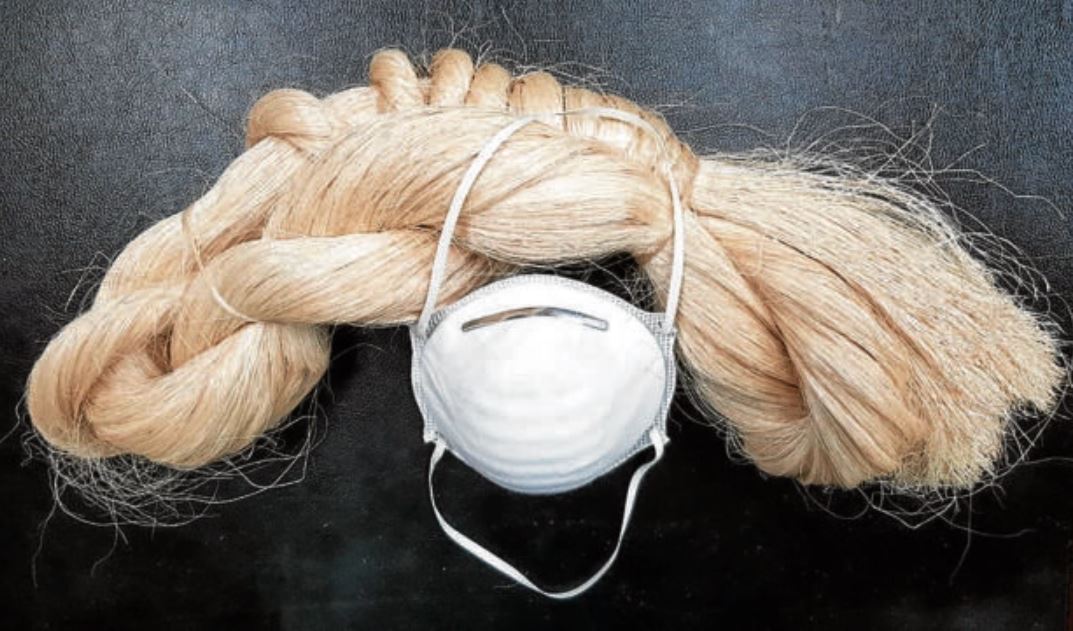
The world demand for Philippine Abaca is rising as raw material for Personal Protective Equipment of frontliners in the battle against COVID-19.
Abaca, a very important product indigenous to the Philippines, has made the country a leading abaca producer with around 90,000 farmers. Abaca exports are worth as much as Php 4.7B, representing an average of 85% of the world’s requirements.
Before the COVID-19 pandemic, the abaca industry was beginning to experience a resurgence due to increased demand for renewable, sustainable, and biodegradable products.
In fact, Abaca was identified as potential material for spacesuits in a study led by De La Salle University. Filipino chemists developed abaca-based woven fabric to filter water pollutants while scientists also invented the Abaca-lined Swan Amphibious Vehicle for disaster rescue and relief operations.
Amidst the global health emergency, Abaca fibers have suddenly become a very important and sought-after commodity.
Many governments and manufacturers from all over the world scamper to produce safe, disposable, and reusable medical garments like face masks, lab gowns, shoe covers, head covers or hoods, and PPEs in an effort to provide their health care workers with safe and suitable protection so they can properly take care of COVID-19 patients.
The Philippine Fiber Industry Development Authority (Philfida) vouches for Abaca as the strongest and the longest natural fiber in the world. The organization says there is no substitute for it simply because of its unique morphological, chemical, and physical properties. And they consider “the abaca plant as a gift from God to the Filipino people.”
Philfida Executive Director Kennedy Costales said, “Before COVID-19, face masks, gowns, shoe covers, head covers, and PPE only represented less than 1 percent of the total annual abaca production in the Philippines.”
Also known as Manila Hemp, Abaca is processed as fine fibers used in medical garbs and garments, clothing, ropes, shoes, bags, mats, and also for food packaging. Abaca fibers are also beginning to play a major role in the paper industry. The fibers can even be used to produce high-quality paper such as in Japan banknotes which contain approximately 30% abaca.
Countries like England, Spain, France, Germany, China, Japan, and the USA are starting to turn away from forest products as a source of raw materials for their paper mills and are beginning to look at environment-friendly abaca fibers – adding to the increase abaca demand in these countries.
SEND CHEERS to the Abaca industry for its resurging popularity as a material for PPEs to protect the world’s frontliners in the battle against COVID-19.
Want to know how to be a Proud Pinoy? Like, Follow, Subscribe to GoodNewsPilipinas.com, and our socials Facebook, Twitter, Instagram, Good News Pilipinas! TV on YouTube, for new story notifications, and e-mail newsletters for updates on more Filipino Pride stories.










